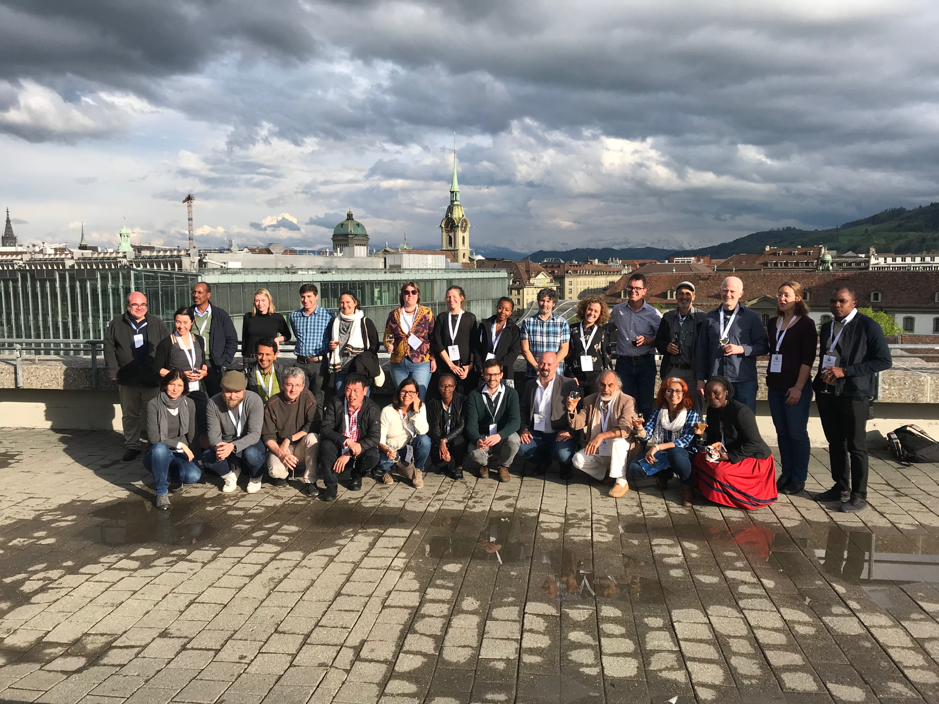In the end of April almost 700 land system scientists travelled to Switzerland for the 4th Open Science Meeting of the Global Land Programme, held in Bern 24-26 April. During the week MRI attended and organized several activities to make mountain topics visible in the programme and connect mountain people in land system sciences.
Scenarios for sustainable mountain development
Research Session (328R): Applying Scenario Tools for Sustainable Mountain Development Thursday 25 April | 15:15 – 16:45
In light of the 2030 agenda, having information on how plausible futures of mountain social-ecological systems may look under different development scenarios, is key to enable dialogue and negotiations with multiple actors with claims on mountain resources. Tools such as social-ecological systems modelling and participatory scenario approaches, are developed to explore these scenarios and likely outcomes for communities, livelihoods, and mountain resources, with the ultimate aim to better project the impact of local and global changes in mountains and assist in designing management decisions towards sustainable mountain development.
The MRI joint forces with the Global Mountain Biodiversity Assessment (GMBA) and the GLP Mountains Working Group to bridge the research communities to gain a common understanding of possible solutions towards a sustainable future for mountain ecosystems and their inhabitants. The research session invited talks presenting mountain scenarios from different mountain regions of the world where modelling tools have been developed based on local needs.
Two speakers of the session presented case studies in African, where global change and warming already threatens food security and people’s livelihoods. In their talks Claudia Capitani (University of York, UK) and Rebecca Kariuki (Nelson Mandela African Institution of Science and Technology, Tanzania) presented participatory scenarios tools, including a variety of stakeholders and compared alternative pathways for sustainable development. Capitani concluded that trade-offs are expected between provisioning, supporting, and regulating services as well as between livelihoods and biodiversity conservation. Kariuki also highlighted the utility of mapped outputs in integrating researchers with policy and practice, by informing sustainability options in national development agenda and land use planning.
Adrienne Grêt-Regamey presented the work from Sibyl Huber, (ETH Zürich, Switzerland) where the idea of scenario building was flipped around in a backcasting method, where a future normative vision is first built, and subsequently identified, how this desirable future could be achieved. These results suggest that, both, policy adaptations and early interventions into the system at the landscape scale can sustainably steer land use changes and help cope with challenges of global change.
Jessica Thorn (University of York, United Kingdom; Colorado State University) offered a great review of the use participatory scenario planning in mountain socio-ecological systems, with good news that such studies in mountains have been growing steadily, but with a clear call for more quantitative modeling. The importance of the scenario co-design with a representative group of actors, was stressed by all speakers and the engaged wrap up discussion called especially for better monitoring of these processes. The need for long-term scenarios (>25 years) years was equally stressed in the talks and discussions. The fact that these tools are developed in various disciplines, ranging from climate change and land systems to ecosystem services and biodiversity sciences offers unique opportunities for interdisciplinary collaboration, towards a more sustainable mountain development.
More details on the the KESHO modelling tool developed by Claudia Capitani and her colleagues can be found in this flyer.
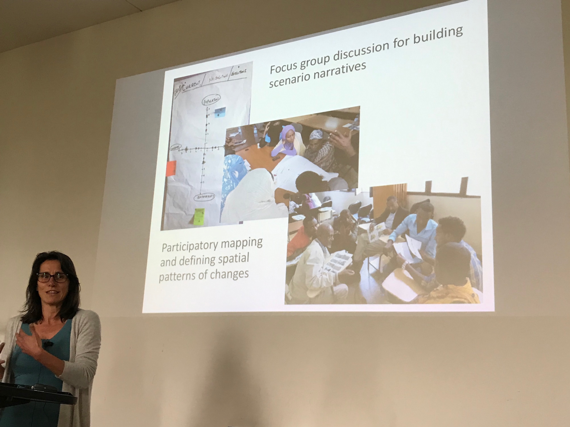 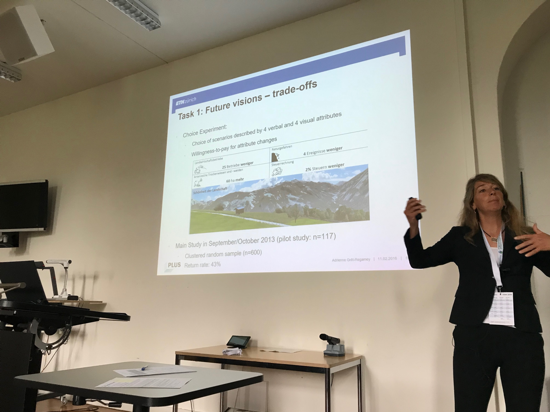 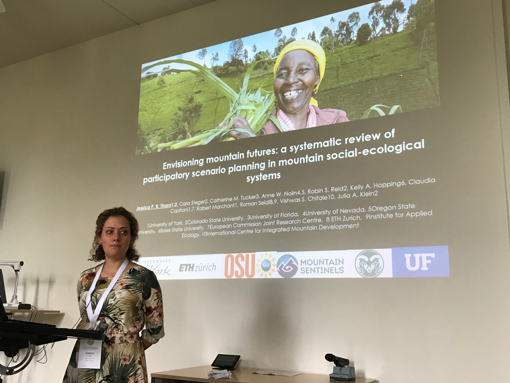 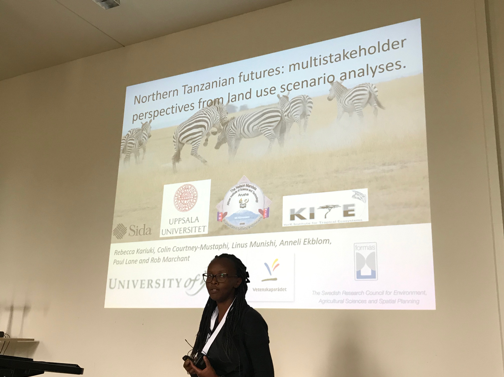 |
|
|
Pictured: Claudia Capitani , Adrienne Grêt-Regamey, Jessica Thorn, Rebecca Kariuki |
Applying participatory scenario tools in research
Training Session (384T): Exploring Scenario Tools for Sustainable Mountain Development – Modelling Session Saturday 27 April | 09:00 – 12:00
Participatory scenario frameworks presented in the research session can be effective tools for management decisions towards sustainable mountain development, but they are also considered challenging to apply and adjust, to meet the needs of different study systems and the visions, of local stakeholders. On Saturday morning, an MRI-organized training session continued with the topic of participatory scenario tools with hands-on training.
During this interactive training session, Jessica Thorn (University of York), and Enrico Celio (ETHZ) introduced participants with, recently developed scenario tool sets KESHO and Participatory Bayesian Network-Based Land-Use Modeling Approach (BLUMAP). The training started with an introduction to the theoretical background and assumptions of these models, and discussed types of situations these tools could be applied to. The participants joined Thorn and Celio in an interactive exercise where a Bayesian Network analyses was jointly built step by step based on the study area, research questions and assumptions given by the participants. Finally, Thorn presented the different steps and possibilities in the statistical analyses with examples from her own work.
We are grateful to both Jessica Thorn and Enrico Celio for sharing their time and knowledge in this topic and to all the participants for their engaged and active participation and encouraging feedback.
More information on the KESHO tool is available in this flyer.
Enrico Celio’s talk on the BLUMAP tool given in GLP Webinar in 2018 can be watched here.
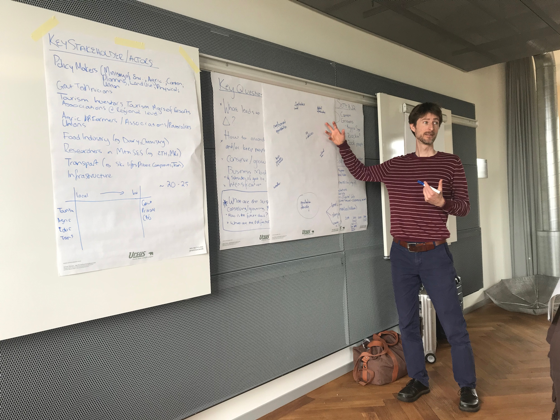 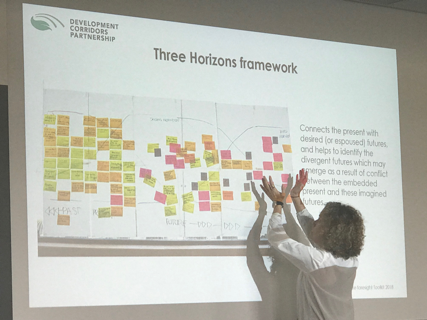 |
Pictured: Enrico Celio and Jessica Thorn instructing participants in participatory scenario building.
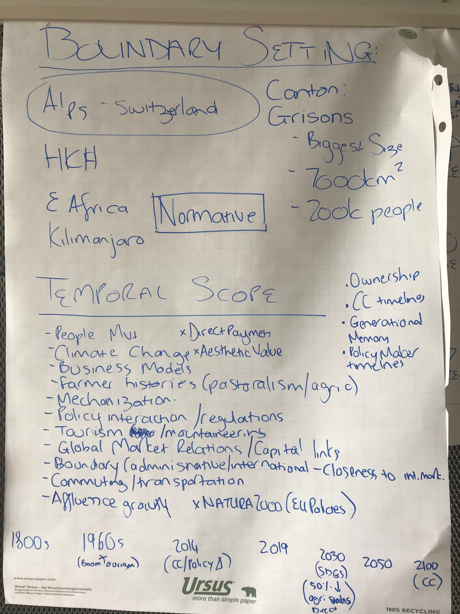 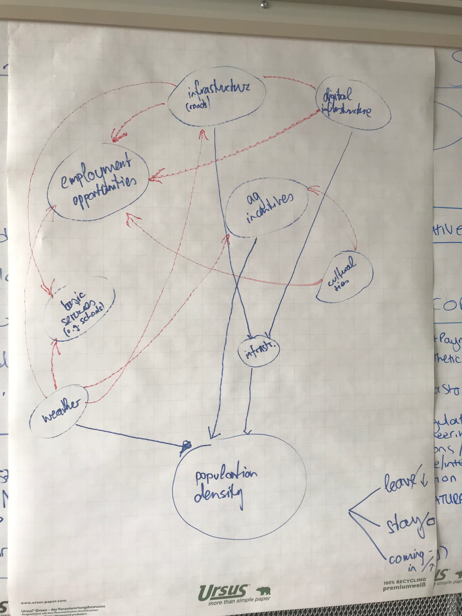 |
Pictured: Setting boundaries and identifying nodes for the joint exercise for Swiss Canton of Grisons at the MRI training session.
Connecting Mountain Researchers in land sciences
MRI Mountain Mixer Friday 26 April | 17:30 – 19:30 Restaurant Grosse Schanze, Bern
Right after the closing ceremony of the conference, MRI invited all conference participants and other, in town working on mountain topics, to enjoy an apéro to meet and connect with various mountain researchers over drinks and snacks. We were very pleased to have almost 50 researchers, representing institutions in 15 different countries, popping in to meet us and catch up with mountain colleagues. On the sunny terrace of Grosse Schanze we toasted a successful OSM and Aino Kulonen and Rob Marchant from MRI shared information on MRI's work and coming activities. This social event was a great possibility to meet peer mountain experts across disciplines, hear stories of old MRI collaborations, share project ideas and engage in new directions.
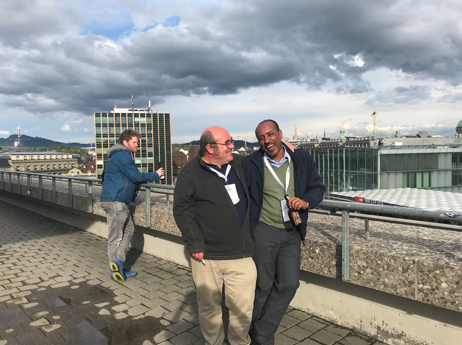 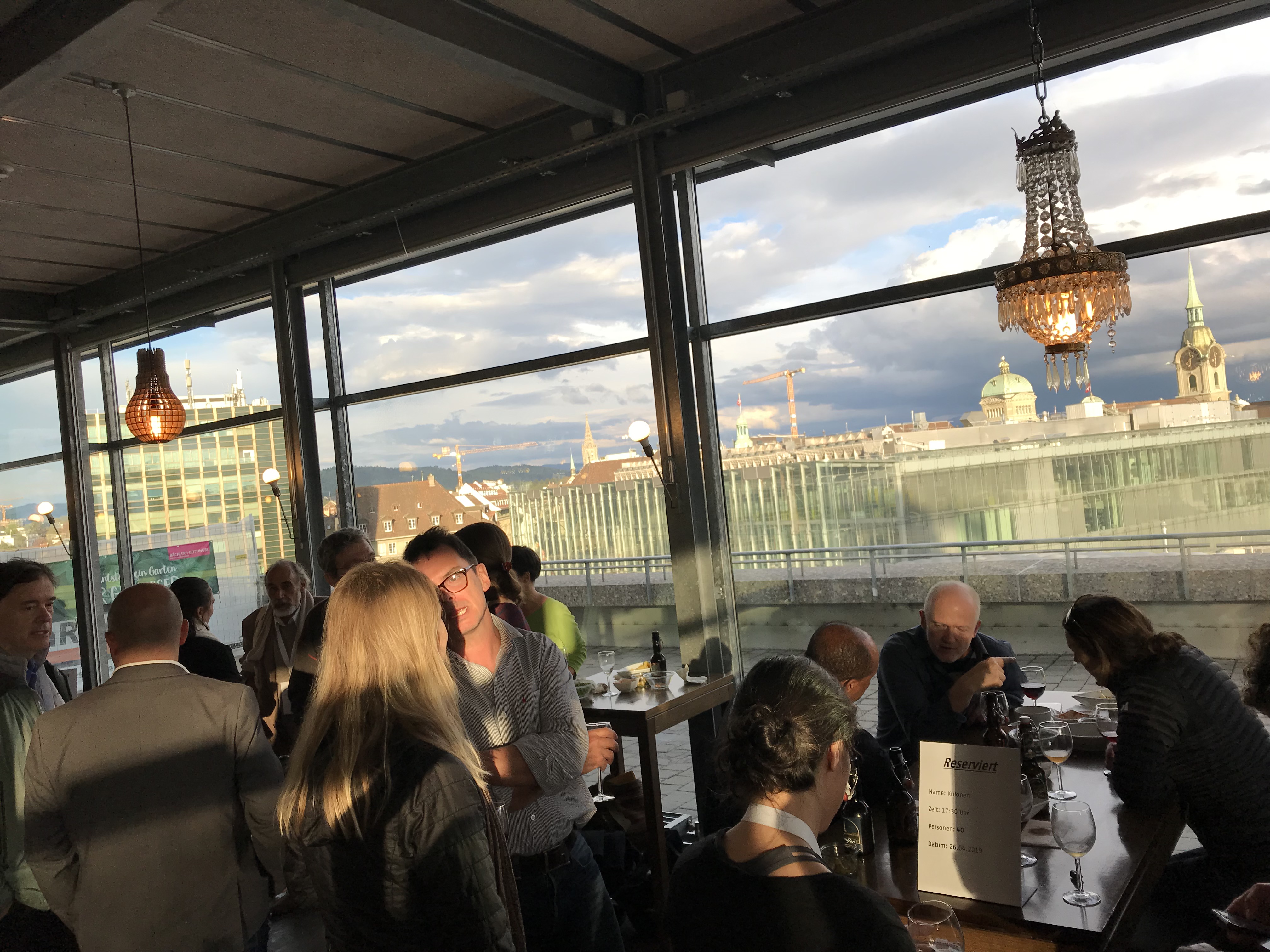 |
We wish to thank all our collaborators and you who joined our activities at the OSM. It was lovely to get to know you and we hope to meet you again soon!




